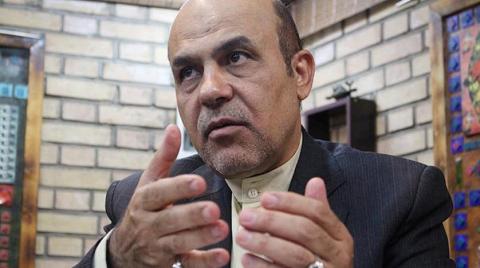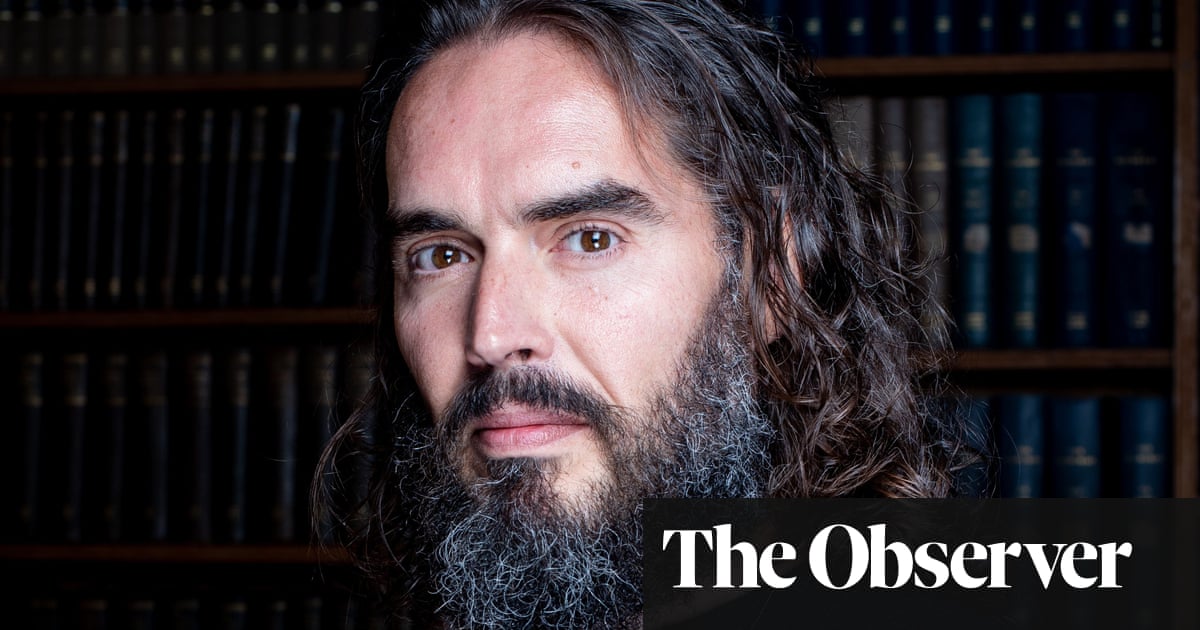
A number of women have accused a prominent British-Iranian anthropologist who recently fled Iran of being a sexual predator who should not be allowed to continue working with women or with the vulnerable groups that are a focus of his research.
Kameel Ahmady, known for work on child marriage, female genital mutilation and LGBT communities in Iran, denies the allegations of sexual assault and harassment, which have led to his suspension from Iran’s Sociology Association.
But in a now deleted post on social media addressing the accusations, he apologised for “mistakes” in the workplace and for “hurting people with my relaxed attitude to relationships”.
Four women have separately claimed to the Guardian that he assaulted them, and others have made allegations of repeated sexual harassment.
Friends and colleagues of the women support their accounts, saying they were told about three of the alleged assaults and multiple cases of alleged harassment before survivors made their stories public.
The women spoke to the Guardian after Ahmady, who was recently sentenced to nearly a decade in jail on unrelated national security charges in Iran, skipped bail, fled the country and did multiple media interviews in the UK, including in the Guardian, telling a heroic story of his escape from the clutches of a brutal regime.
They say they fear that when he restarts research, other women could be at risk. Although he cannot return to Iran, many of the issues he has studied affect cross-border communities in the region, where he could continue working.
“When I heard about his other [alleged] victims, and the fact that they were being largely, if not completely ignored, I could not bottle it up any longer,” said one woman, who is speaking publicly about her experience for the first time.
“Every single thing I know about [Ahmady] makes their testimonies credible. He is a predator and a serial abuser. I am so afraid that he will go on to have other opportunities to work with vulnerable women, and hurt them the way he hurt me.”
Ahmady said in a statement that the accusations were “baseless slander” organised by professional rivals and the Iranian state in an attempt to smear him and undermine his work.
He also said two accusers had been in consensual relationships with him. He did not say which ones or how he had identified them from anonymous accounts.
Some of the claims were first made public last year, when the global #MeToo movement found voice in Iran in an outpouring of accusations against prominent figures, including Ahmady. At least seven allegations against him were published anonymously on social media accounts in August and September last year.
That led to an investigation by Iran’s Sociology Association, which suspended his membership and ended his role as secretary of the Children Sociological Studies Group after finding that “at the minimum, some abuse of power had occurred”.
“(His) behaviour resulted in the sexual abuse of several young researchers and violated ethical codes governing scientific and research activities,” the group, which does not have political affiliations, said in the statement.
Ahmady said the accusations had not been tested in court, and described them as part of a campaign to “silence my voice”, which involved the Iranian security forces as well as personal enemies in academia.
“Since my escape from Iran, rival individuals and groups have been brought to bear upon me with the sole intention of destroying me, my research, as well as my professional and personal standing,” he said in the statement, which did not address any specific details of the allegations.
“The press is now being manipulated by them and those afraid of them, and those seeking to displace me as a scholar in my field.”
One woman the Guardian spoke to described allegations of serious assault that she said had occurred more than 15 years ago outside Iran. The others all detailed alleged attacks that they say took place while he was doing field work in Iran over the last decade.
Golshan* says she was unnerved when Ahmady began a sexually explicit conversation over lunch on her first day at work as a researcher, and then tried to offer her lemonade laced with alcohol on her second day.
She was working for a man she admired, who was on a self-proclaimed mission to “protect the vulnerable”, so it never crossed her mind that she might be at risk. She says she only understood when it was too late, after he led her into an empty apartment for what she thought was a work meeting and locked the door and took out the key. She was a university student, about 36 hours into her first job.
“When I figured out what was going on, it was really too late, there was no way out of that building. He was drunk and I didn’t really fight back because I thought he was going to hurt me,” she claimed.
In a statement Ahmady posted on social media shortly after the first allegations surfaced last year, he admitted “mistakes” and apologised to “anyone I have ever hurt”, but said all his sexual relationships had been consensual.
“There are massive differences between inadvertently hurting someone, and raping, abusing and forcing a person into a non-consensual relationship. I want to unequivocally say that I am not a rapist or an abusive person,” he said.
He went on to claim in the same statement that cultural differences and his “relaxed attitude” led to accusations of inappropriate behaviour.
“I now accept all justified criticisms, particularly in those instances when I did not have the correct understanding of the culture and failed to observe proper social protocols because of my different views on relationships and relaxed attitude in the workplace.”
The women who allege assault, and others who worked with him, suggest this argument is familiar. Ahmady often made sexual jokes, steered the discussion to sexually explicit subjects, and asked intrusive questions about their sex lives, they claim.
According to several of them, if they protested, he said that feminists should support sexual liberation, and insisted the sexualised conversations reflected his modernity. When women resisted his sexual advances he mocked them for being “conservative”.
One woman described her shock when Ahmady excused himself to go to the bathroom during what she thought was a work meeting, and re-emerged naked.
“He started laughing and said ‘what are you afraid of, this is something really natural, if you are afraid of me when I am naked it means you are conservative, provincial and small minded’,” she claimed. “After that he said ‘if you want to be a real feminist, and you want to solve your contradictions in your mind, you should accept to look at me when I am naked’.”
Samaneh Savadi, a UK-based gender equality activist, said she received threats from Ahmady’s Twitter and WhatsApp accounts after linking him to an anonymous allegation against “KA” on social media.
At the time, Ahmady was facing national security charges of cooperating with a “hostile state power” in his research projects. He has described the Iranian state as ideologically opposed to his work on sensitive topics.
Yet the messages to Savadi suggested he would tell security forces details about the accuser and her work in one of these sensitive fields, which could lead to her facing charges, if the post was not removed.
“In my previous interrogation they asked me about her,” the message said, indicating that he recognised the incident and knew the woman’s identity – although the message described her account as “incomplete”.
“Now I am in a very difficult situation, if I decide to tell them the truth, it will be damaging to all of us. Would you please delete the post before it gets viral and makes trouble for all of us. We can also talk tomorrow. Thank you.”
Among the activist and research communities where he worked, anger about the claims has been compounded by disgust at the suggestion that he exploited young women’s feminism and idealism to create situations where abuse could take place.
”He’s taken advantage of the trust of these young women who are idealists … they thought working with him was a way to further their broader cause of women’s rights,” claimed Sussan Tahmasebi, a leading women’s rights activist. “His access to vulnerable woman, as a scholar who is claiming concern about the wellbeing of women and their empowerment, has to end.”
It could also have the potential to set back research into critical areas. Negative stereotypes about feminists and activists can make it hard to gain the trust of conservative communities like the ones that practice FGM and child marriage.
The allegations against Ahamdy could reinforce the worst of these, said Savadi, which may lead to them cutting off access others need to carry out vital research in future.
“We trusted him to do work on a very sensitive subject, and he betrayed all of us,” she said. “And I wonder: did he chose these specific subjects to be able to build a relationship with women, to then take advantage of them?”
Another woman who worked with Ahmady said she did not witness sexual violence but ended their professional relationship over what she says was his inappropriate behaviour.
She claimed this included highly sexualised language, use of alcohol and hashish, and sexual relationships with young researchers that she considered an abuse of power, all in a work setting.
She also claimed that despite describing himself as committed to social issues, he repeatedly failed to credit female partners fully for their contribution to his work.
Ahmady said he would welcome having the allegations tested by a jury of his peers. There is little chance he would have faced trial in Iran, even if he had not fled; the women who alleged assault there said they did not feel they could press charges within the Iranian judicial system.
Iran criminalises consensual sexual relations outside marriage, so if rape victims report assault but are not believed by authorities, they risk prosecution themselves. And if a case goes to court, the mandatory punishment for convicted rapists is execution, placing a heavy burden on survivors seeking justice.
There is a pattern of behaviour across alleged attacks in Iran that were described to the Guardian by survivors. They all claim Ahmady targeted young women with whom he worked.
They allege he would engineer situations when he was alone with the women, on the pretext of meeting for work. They expected to be part of a group but arrived to find only Ahmady. Several said he offered them intoxicants that are illegal in Iran, including alcohol or hashish, or tricked them into consuming them.
Most of the women continued working with Ahmady for a period after experiencing assault or harassment, they said, because there were few other professional options available to them in the small and sensitive fields where they worked.
They said they tried to warn other women where they could, but part of the reason they made the difficult decision to tell their stories in public, at risk of being identified, was to help protect others.
“What can moderate my pain is that at least even if one person believes what has been done to me, and he is stopped from being able do anything like that to another woman,” one accuser said.
* Not their real names.












